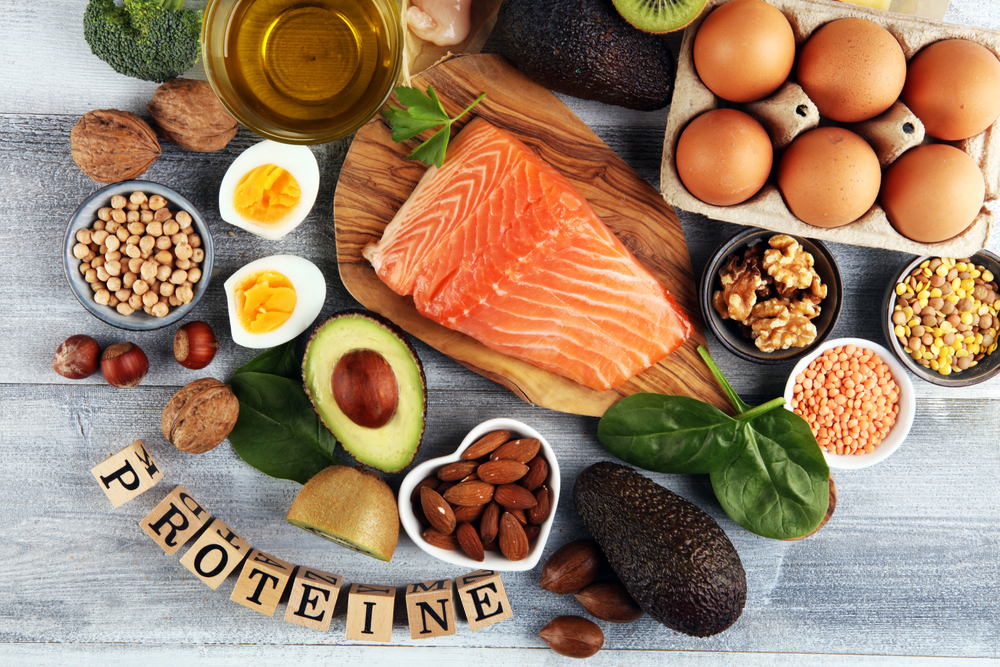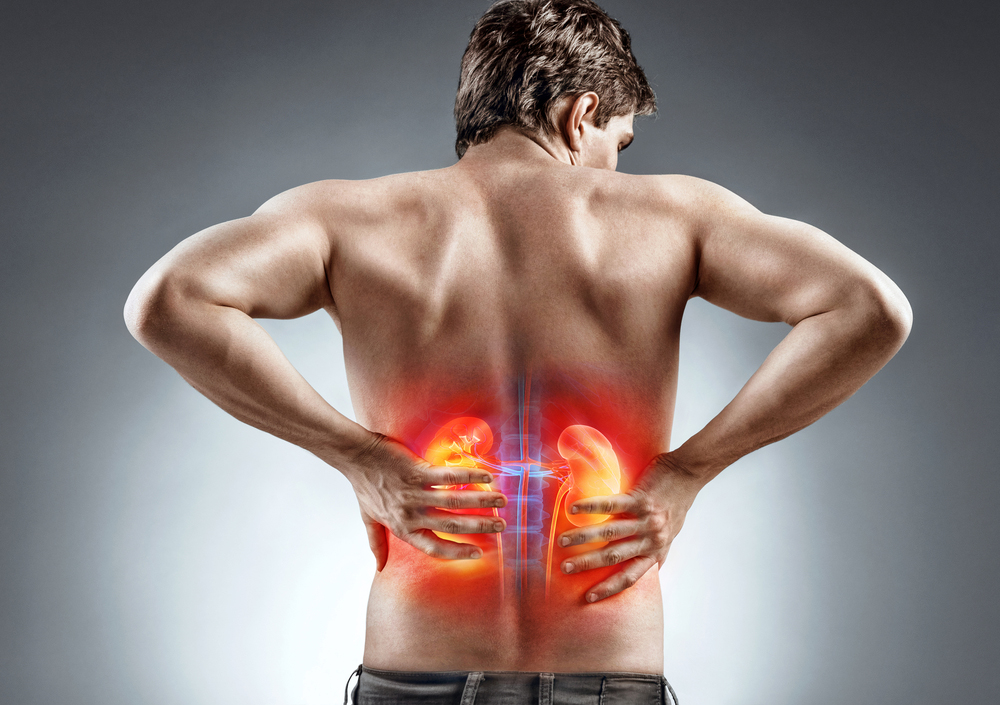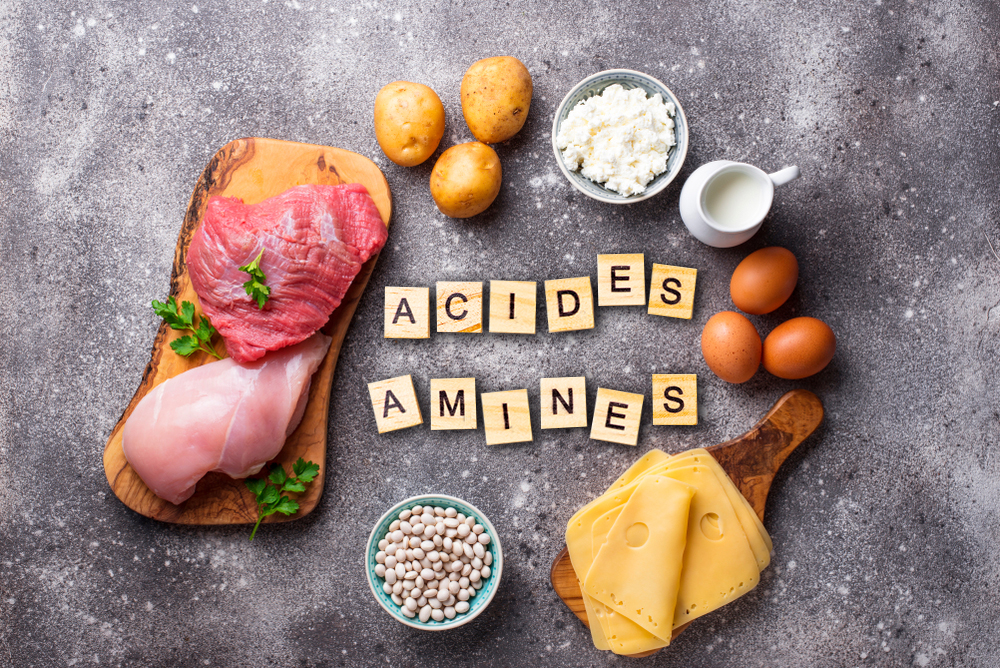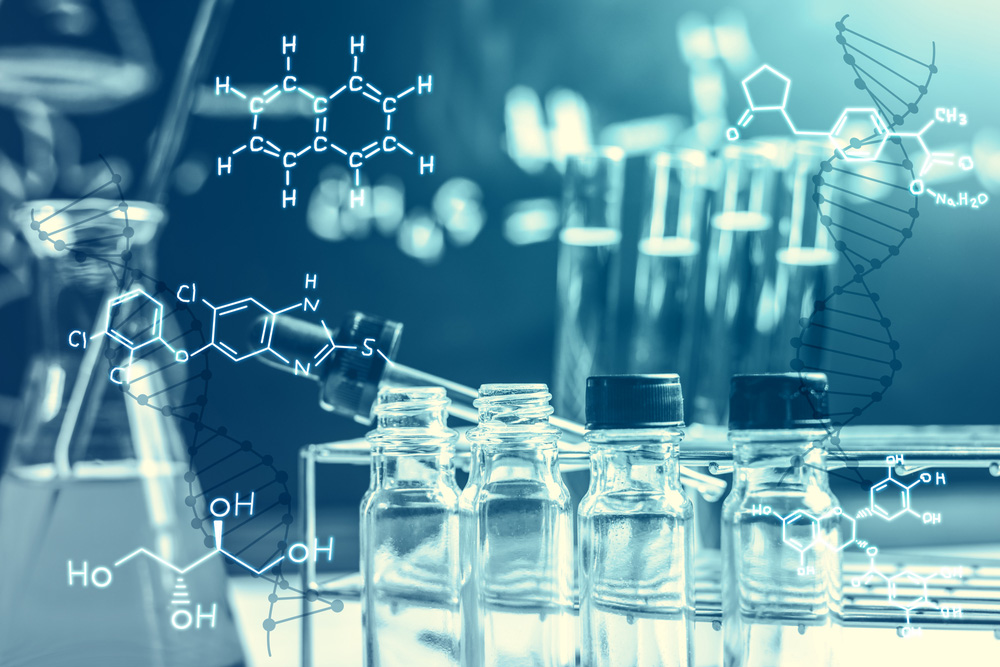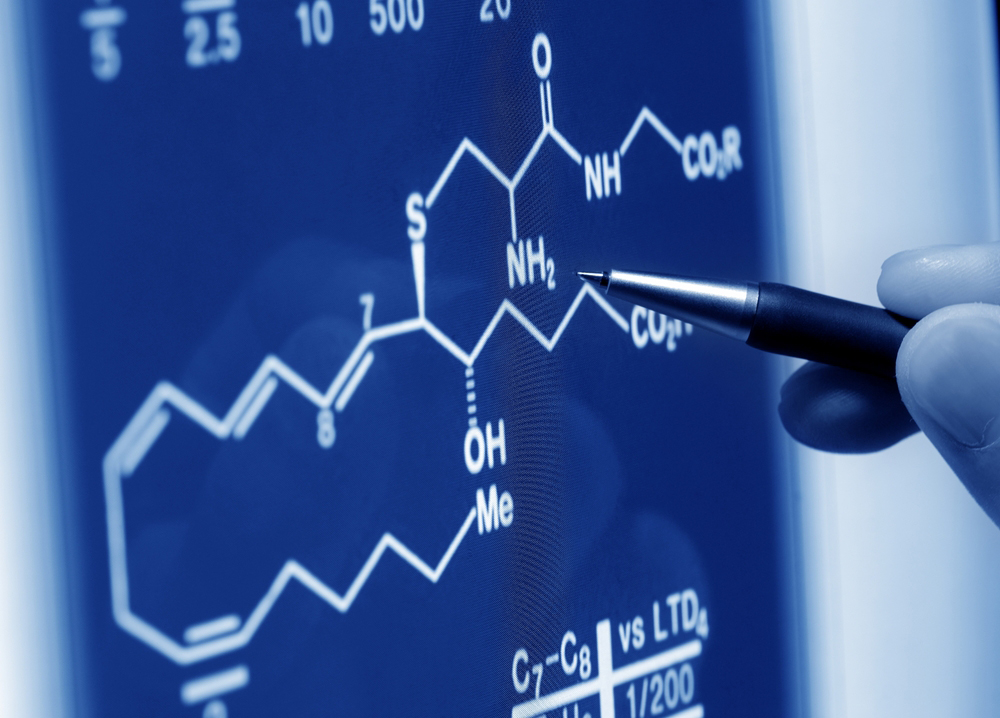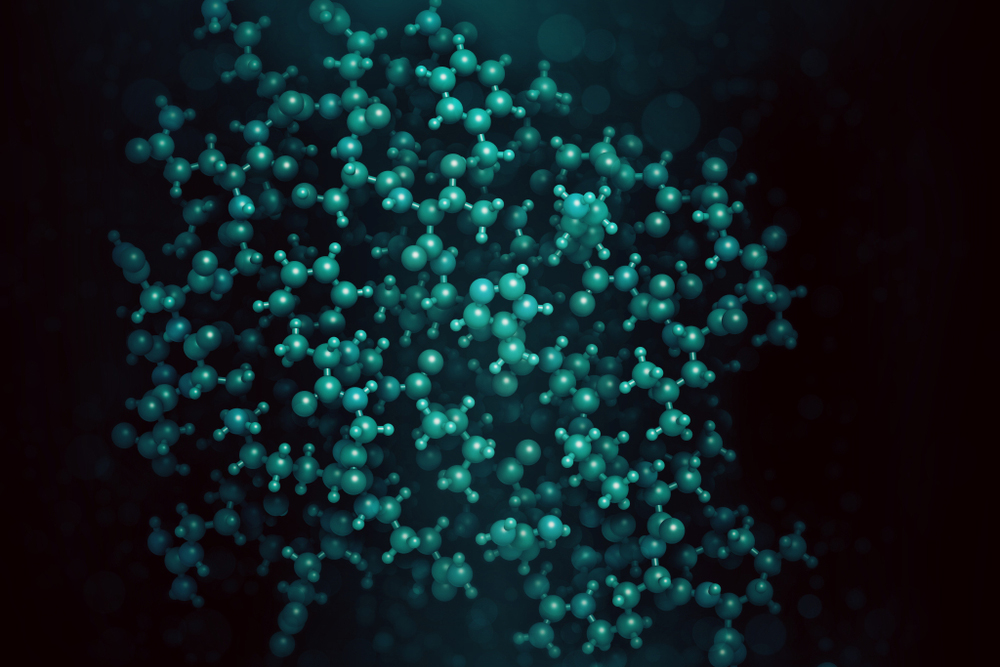Proteins, also known as protides, were first discovered by the Dutch chemist Gerardus Johannes Mulder in 1835. According to the Scientecal website, a protein is "a macromolecule composed of a chain or sequence of amino acids linked together by peptide bonds".
In this article, we will not dwell on the technical details of protein composition. We will simply help you understand what protein (macronutrient) is, what its benefits are, what the recommended protein intake is for each person, and which foods are rich in protein.
The benefits of protein
Proteins are present in every cell of our body and play an essential role in our body. It is one of the main components of the immune system. The immune system helps your body fight infection and disease: antibodies, for example, are proteins that fight foreign substances that are considered harmful.
Proteins also help in the renewal of tissues, not only muscles but also bones, nails, hair and skin. necessary for muscle growth.
Proteins are digested into dipeptides and amino acids. (cf:dipeptide innovation for bodybuilding)
Animal proteins and vegetable proteins
There are two types of protein in our diet: proteins of animal origin and proteins of plant origin. As the name suggests, animal proteins are derived from animals (e. g. meat, fish, poultry, eggs and dairy products).
Proteins of plant origin are numerous and can be sorted into three main categories which are pulses (e. g. lentils, kidney beans, black beans, beans, split peas and chickpeas), oilseeds (e. g. soybeans, linseed and flaxseed), and milk products: soybeans, flaxseeds, sunflower seeds, sesame seeds and poppy seeds) and oilseeds (e. g. walnuts, hazelnuts, pecans, macadamia nuts, pistachios and almonds).
Until recently, proteins of plant origin were considered less "complete" than animal proteins because many plant foods do not contain all eight essential amino acids that our bodies need. However, many more recent studies contradict the concept of protein complementarity as a varied and balanced diet more than compensates for the potential lack of essential amino acids. Meat consumption is therefore not essential, even for an athlete with a high protein diet.
Recommended amount of protein
The recommended protein intake may vary significantly from person to person depending on age, sex, physical activity and metabolism of the person. It is expressed in grams per kilogram per day, i. e. the number of grams of protein to be consumed each day in relation to your weight (in kilograms).
The recommended nutritional intake by the Agence Nationale de Sécurité Sanitaire des aliments, de l'Environnement et du Travail for a sedentary adult is 0. 8 grams of protein per kilogram/day. This means that for an adult weighing 70 kilograms, the recommended protein intake per day is 0. 8×70 = 56 grams.
Children, babies, elderly, pregnant and breastfeeding women all need more protein than average (between 0. 95 and 1. 3 grams of protein per kg per day).
Although the importance of a high protein diet for physically active people has not been validated by science, a high protein diet is generally recommended for people with recurrent and high intensity physical activity.
Protein is particularly important for athletes as it helps regenerate tissue damaged by physical activity and a protein deficiency may slow down this process.
Recommendations vary from 1. 2 to 1. 7 grams per kg per day for endurance athletes, 1 to 1. 7 grams per kg per day for strength athletes and up to 2 grams per kg per day for mass gain (under medical supervision).
Athletes who wish to consume protein powders to increase their protein intake can do so without any risk, provided that these protein powders serve as a complement to other sources of protein present in everyday foods (meat, legumes, etc. ).
Beware, however, that too much protein can have a negative impact on your health (e. g. an increased risk of kidney stones) and too much meat consumption is often linked to an increased risk of cardiovascular disease.
To avoid this, the protein you consume should not be more than 25% of your total calorie intake. Even if you are on a protein or low-carb diet, remember to eat good quality fats and complete carbohydrates several times a day.
A blood plasma study will tell you whether you have hyperprotidemia (excessive protein concentration in the blood) or hypoprotidemia (decreases in total protein concentration).
Conclusion
Proteins are essential for the proper functioning of our body. In order to avoid a protein deficit or an excess of proteins (especially if you consume a large part of your proteins in the form of animal proteins) you can refer to the nutritional intake recommended by the National Agency for Food, Environmental and Occupational Health Safety or resort to a blood plasma study.
Most importantly, make sure you vary your protein sources as much as possible. Your body will thank you for it.
Protein is even more important for athletes,to maintain a certain level of muscle.
Excess protein is not dangerous for the kidneysas one might think, except in certain cases.
Bibliography
1. Frances Moore Lappé, Diet for a Small Planet(ISBN 0-345-32120-0), 1981, p. 162
2. V. R. Young and P. L. Pellett, "Plant proteins in relation to human protein and amino acid nutrition,"The American Journal of Clinical Nutrition, vol. 59, no. 5 Suppl, May 1994, pp. 1203S-1212S

